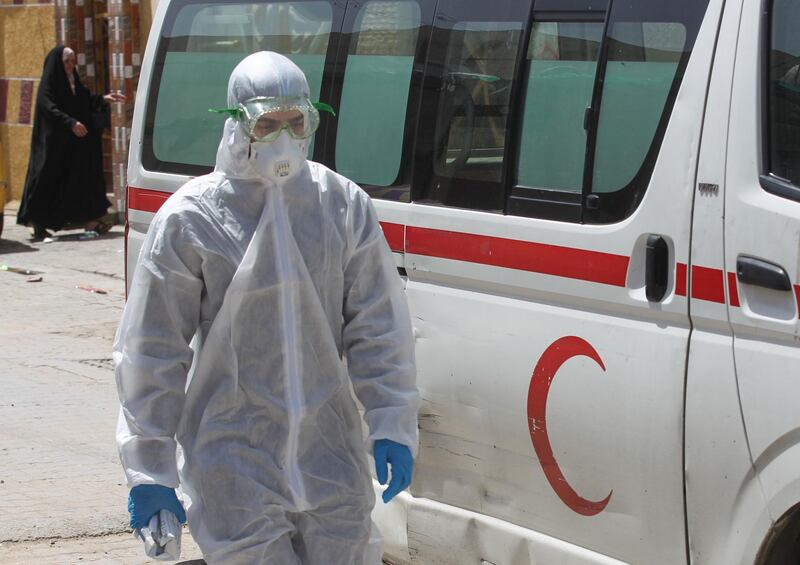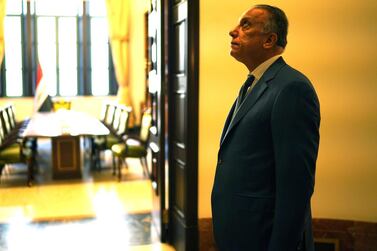Several districts in Baghdad were put under full lockdown on Wednesday after Iraqi authorities warned that the health system cannot handle a rise in coronavirus cases.
The implementation of the new measures came after the country recorded a spike in coronavirus infections since restrictions were recently relaxed.
Iraq has recorded 3,724 infected cases and 134 fatalities since the outbreak began earlier this year. Baghdad reported 113 new cases and 3 deaths on Wednesday.
"The lockdown will start on Wednesday morning, it will be implemented on areas with the highest number of infected cases," Health Minister Hasan Al Timimi said on Tuesday night.
The areas include Sadr City, Habiba, Kamaliya, Hurriya and Al Amiriya.
"The decision was taken due to the rise in the number of coronavirus infections in Baghdad," Mr Al Timimi said.
The lockdown will last for two weeks, the minister said.
“We anticipate that this will have a significant impact on stopping the spreading of the virus,” he said, adding that the lockdown includes a ban of movement between the districts and the closure of some shops.
The newly nominated health minister said the increase in number of coronavirus cases is starting to put pressure on the country’s health system.
“That system is not ready to handle such pressure,” he said.
With a healthcare system depleted by years of conflict and corruption, officials across the country have warned that they are not equipped to deal with a full-blown crisis.
Mr Al Timimi urged the public to follow the anti-coronavirus measures set by the government, such as social distancing and wearing masks when necessary.
“Noncompliance to the health directives may result in unimaginable consequences,” he said in a statement.
Since the outbreak of the virus Iraqi authorities closed the borders with neighbouring Iran, which has seen the world's deadliest outbreak, and banned the entry of foreign nationals travelling from there and other badly affected countries.
Schools, universities, cinemas and other public spaces were immediately closed.
The government said on Monday that it will reimpose a full curfew on vehicles and pedestrians during the Eid Al Fitr holiday, starting from Sunday for one week.
Since the start of the holy month of Ramadan, Iraq partially lifted its curfew, which is currently set between 5pm and 5am local time.
Earlier this week authorities in Baghdad placed imposed a curfew on the country’s chickens, after discovering one that was infected with bird flu, north of Baghdad.







